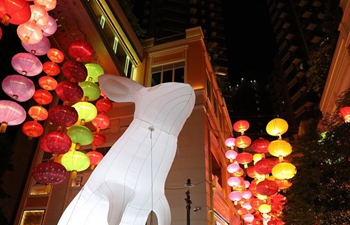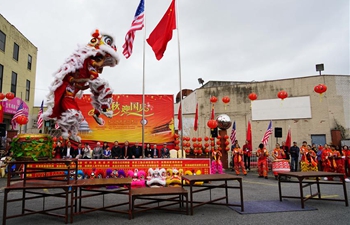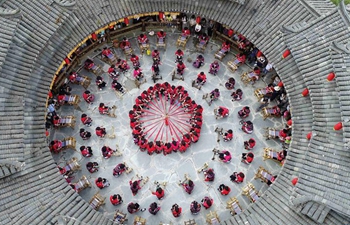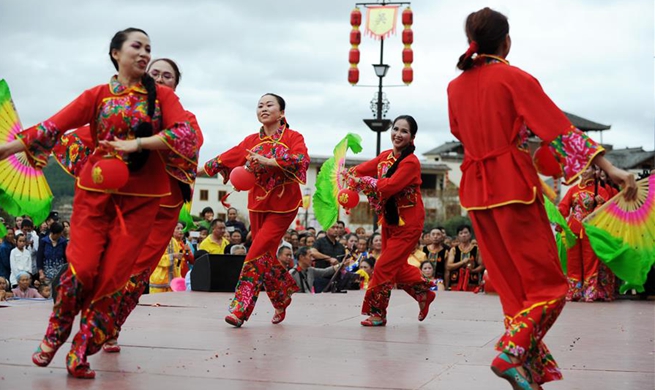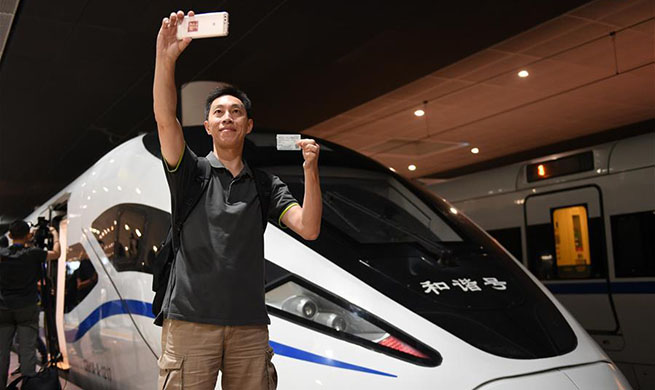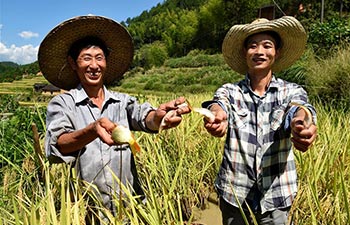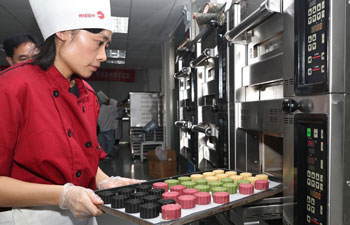by Wang Shoubao, Elias Gebreselassie
ADDIS ABABA, Sept. 24 (Xinhua) -- Arkebe Equbay, special adviser to Ethiopian Prime Minister Abiy Ahmed, is a busy man, as the country of around 105 million people races to meet the economic needs of the estimated 70 percent of the population that is believed to be below 30 years old.
In particular, Equbay sees the textile and apparel sector and the experience of China in this sector as crucial to lifting his country from poverty and achieving an industrialized middle-income economy status by 2025.
Emphasizing that the textile and apparel sector is the largest employment generator globally, Equbay told Xinhua he foresees his country, with the help of China, achieving a 30 billion U.S. dollar revenue from the sector in 10 years' time.
"Ethiopia needs China's experience and knowledge in the textile and apparel sector to fill our skill gap and make Ethiopian textile products competitive in the global market," he said.
With Chinese firms already an integral part of the global textile and apparel value chain and a major part of its output, Ethiopia has decided it needs China's help for its own burgeoning industry.
With China announcing during the Forum on China-Africa Cooperation (FOCAC), held in Beijing earlier this month, plans to step up its efforts to help the industrialization ambitions of African countries, Ethiopia sees China as a strategic partner to achieve its manufacturing ambitions.
Equbay said Ethiopia has learned from China's experience on the need first for skilled manpower and basic infrastructure, if the east African country's manufacturing ambitions are to be realized.
"Ethiopia has an abundant trainable labor force, low energy cost... and almost free provision of land for those interested to invest in the textile and apparel sector," he said.
Ethiopia has also learned the need for an integrated supply chain in the textile and apparel sector and, for this purpose, is currently in negotiations with 12 large Chinese mills for them to set up plants in Ethiopia.
Having reconciled recently with its former bitter rival Eritrea and deciding to allow foreign investment in its logistics sector, landlocked Ethiopia is working to ease transportation bottlenecks for its exports and expand its port options now largely restricted to Djibouti.
Equbay's optimism in Ethiopia's textile and apparel sector is shared by Liu Yu, economic and commercial counselor at the Chinese embassy in Ethiopia.
Speaking to Xinhua, Liu said the recent FOCAC summit concluded with China pledging to assist African countries in eight major initiatives, including industrial promotion, infrastructure connectivity, trade facilitation and green development, and that Ethiopia, the first African host of FOCAC back in 2003, is one of the key African countries expected to benefit from those initiatives.
"China in the next three years will provide 60 billion U.S. dollars in financing for African countries and Chinese companies will be encouraged to invest 10 billion dollars during the next three years, based on the principle of open and inclusive approach to African countries," Liu said.
With China starting its successful industrialization process with the textile and apparel sector 40 years ago, Liu noted, Ethiopia, which is looking to emulate China's manufacturing success, will be given special attention.
"Chinese investment has covered well over half of increased investment to Ethiopia over the past two years, with an increasing trend, helping complement Ethiopia's manufacturing ambitions," Liu told Xinhua.
He said China also hopes to help Ethiopia avoid the environmental cost China had to endure to achieve its four decades of rapid economic growth.
"We advise Chinese investors to establish environmentally friendly manufacturing plants, in strict compliance with Chinese and Ethiopian environmental standards," said Liu.
Ethiopia, which hopes to create a carbon neutral economy by 2025, is already being supported environmentally by China, including in flagship projects like the 4 billion dollar Ethiopia-Djibouti electrified rail line and the eco-friendly Hawassa Industrial Park.
